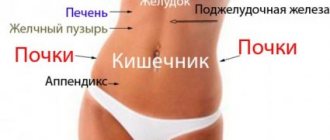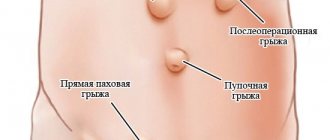Digestion is a natural process that repeats itself daily in the human body. Normally, it proceeds without any special features, unnoticed by others. However, some people have to deal with stomach bloating.
Accumulation of gases in the intestines can occur regularly or have a one-time manifestation. What to do if your stomach is very swollen, and is it worth interfering with this process at all? The answer to this question will depend on the causes of this condition.
Why does cabbage make your stomach bloat?
Almost all varieties of cabbage consist of coarse fiber. On the one hand, fiber is needed by the body and is good for the intestines. On the other hand, its digestion requires a large number of protein molecules and increased work of the digestive organs.
The digestive system, which is poorly functioning due to diseases or age-related changes, has difficulty digesting such food. This causes excess gas and constipation. The unpleasant odor produced by this is aggravated by the presence of sulfur compounds in this vegetable.
Recommendations
Here are some tips to help reduce bloating quickly:
- Eat slowly – if you eat in a hurry, you will swallow a lot of air.
- Chew your food thoroughly - larger pieces take longer to digest, which means they spend more time in the gastrointestinal tract.
- You should chew food with your mouth closed and do not speak with your mouth full - this will allow you to swallow less air.
- Do not drink hot drinks, wait until they cool down a little - when drinking a hot drink, you try to cool it by opening your mouth and swallowing a lot of air.
- Reduce your consumption of carbonated drinks, including sparkling wines and beer.
- Don't chew gum—chewing gum “helps” you swallow more air.
- Don't drink through a straw.
- Don't smoke after eating. It's best to quit smoking completely :o).
Unfortunately, it is not always possible to get rid of flatulence through dietary changes alone. You will have to be examined by a gastroenterologist to find out whether any parts of the digestive tract are seriously affected. If this is so, it’s worth saying “thank you” to flatulence - after all, it was he who initiated the examination: with an accurate diagnosis, after which full treatment is possible, which means getting rid of not only flatulence, but also many other problems that would sooner or later develop in the case of advanced course of the disease.
But if no serious diseases requiring medical intervention are identified, then nutrition correction is a really big and effective step towards getting rid of flatulence.
What to do and how to get rid of it?
If eating white cabbage dishes has caused such an unpleasant phenomenon as bloating, then you can get rid of it with pharmaceutical drugs or folk remedies.
Drug therapy
The following groups of medications can help get rid of flatulence:
- Enterosorbents - activated or white carbon, "Sorbex", "Smecta", "Neosmectin", "Polysorb", "Polifepan", "Entegnin". They absorb excess gases and harmful substances and activate the digestive tract.
- Defoamers - “Espumizan”, “Infacol”, “Bobotik”, “Kuplaton”. These drugs crush large bubbles, which improves their absorption and excretion.
- Prokinetics - Motilium, Domperidone, Trimedat. They promote better intestinal motility.
- Antispasmodics - “No-shpa”, “Spazoverin”, “Spazmol”, “Biospa”. They will help if bloating is accompanied by pain.
- Combined medications - “Meteospasmil”, “Pankreoflat”, “Pepfiz”. "Meteospasmil" includes a combination of an antispasmodic and a sorbent, and the last two drugs consist of antifoaming agents and enzymes that promote better absorption of food.
Folk remedies
There are many folk recipes to get rid of flatulence:
- Infusion of fennel seeds (dill, caraway, anise). When preparing a medicinal infusion, 2 teaspoons of seeds are brewed with a glass of boiling water and left for several hours. Consume ¼ cup 4 times a day.
- Chamomile tea . Relieves spasms and pain, soothes mucous membranes. Take 1 tbsp. spoon of dry raw materials from the pharmacy and pour 200 ml of boiling water. Leave for 20–30 minutes and strain through a sieve. Drink 2–4 times a day, ½ glass.
- Mint tea. Pour 250 ml of boiling water 2 tbsp. spoons of mint and drink throughout the day before meals.
- Herb tea. A drink made from equal parts of chamomile, lemon balm and oregano will be useful. Leave for 30 minutes, 1 tbsp. spoon of a mixture of these herbs in a thermos and drink a glass 3 times a day.
- Infusion of parsley root . Pour 3 teaspoons of raw material into a glass of boiling water and leave for 8–10 hours. Consume 1 tbsp before meals. spoon of infusion 3-4 times a day.
- Herbal collection. Take a mixture of 1 part mint, 2 parts chamomile, 2 parts dill seeds, 2 parts marshmallow root and 2 parts licorice rhizome. Pour 1 tbsp. spoon the mixture with a glass of boiling water and cover with a lid for 40 minutes. Strain through a fine sieve or cheesecloth and drink several times a day.
The removal of gases from the intestines is facilitated by massage of the abdomen in a clockwise direction.
Nutrition adjustments
If a person has a swollen stomach, then first of all you need to pay attention to your diet.
You can eliminate increased gas formation in the intestines by giving up street food and fast food. Such food contains a large number of carcinogens that negatively affect the human body. Low-quality synthetic food causes bloating, belching, aching pain and colic in the stomach. Frequent consumption of such foods can cause gastritis and stomach cancer. Increased gas formation in the intestines is caused by foods containing dyes. It is necessary to stop consuming sweet carbonated water and sweets. It is necessary to limit the consumption of kvass, beer, and carbonated mineral water. You should adhere to a gentle diet. It is not recommended to consume large amounts of salty, spicy, overcooked food. You should not eat large quantities of grilled chicken, smoked meats, and canned food. Food must be heat treated. To avoid poisoning and increased gas formation, it is necessary to avoid raw, undercooked and undercooked food. You should limit your sushi consumption. The diet should include fresh fruits and vegetables rich in vitamins and microelements. Experts recommend buying complex vitamins in pharmacies.
Other foods that cause flatulence
It's not just cabbage that causes bloating.
There are other foods that cause gas:
- beans, soybeans, peas;
- radish, turnip, radish;
- onion;
- mushrooms and artichokes;
- whole grain products, bakery products;
- all cereals except rice;
- grapes, pear, apricot, sweet cherry, cherry, plum, apple, peach, melon, fig, date;
- Jerusalem artichoke;
- carbonated drinks, beer, kvass and juice;
- milk, kefir, fermented baked milk, ice cream.
Do not forget about the known gas-forming combinations of products:
- legumes with black bread;
- milk with bread, fish or meat, sour fruits;
- sweet juices with protein, starchy or salty foods;
- jelly with sweets.
Pathological conditions
The reason why the stomach is constantly swollen may be pathological. It would seem that a person eats correctly, does not make mistakes and categorically refuses prohibited foods. However, symptoms such as rumbling, abdominal pain, and incessant flatulence do not even get better. Pathological causes of increased gas formation include:
- violation of digestive function (insufficiency of enzymes, bile);
- mechanical obstruction (adhesions, tumor processes);
- violation of the motor function of the digestive tract (dynamic gas formation);
- inflammatory processes (hepatitis, cirrhosis, gastritis, ulcers, Crohn's disease, colitis);
- vascular pathologies (thrombosis, varicose veins).
When a patient experiences increased flatulence and this condition persists for a long time, diseases such as:
- dysbacteriosis;
- helminthic infestations;
- intestinal infection;
- allergic reactions;
- gynecological pathologies.
Interesting! Pain and swelling in the lower abdomen: causes and prevention
It is possible to determine why the stomach is swollen and gases often pass away only after an examination. To do this, you need to contact a specialist.
Important! You cannot tolerate discomfort; if there is pathology, it will not disappear on its own, but will only increase.
How to cook cabbage so that your stomach doesn't bloat?
The vegetable will not swell too much if it is heat treated. When boiled, baked or stewed, cabbage does not cause gas as much. You can prepare dishes such as stewed cabbage in tomato, vegetable stew with cabbage, cabbage soup, borscht. A combination of cooked cabbage with rice or beets will be useful, since the latter help with the accumulation of gases in the intestines. Eating a fermented product does not cause severe flatulence.
What vegetables cause bloating?
In this section we will find out which vegetables cause bloating.
Increased gas formation is caused by legumes. These vegetables include peas, beans, beans, lentils, and soybeans. Dishes prepared from them are very difficult for the stomach to digest. They enter the intestines almost undigested. Processed with the help of bacteria. In this case, a person may feel bloated. White cabbage, cooked or raw, causes flatulence. The fact is that it contains raffinose, which is poorly digested by the stomach. It can only be broken down by bacteria in the gastrointestinal tract. During the splitting, gas begins to form. A person's stomach begins to swell. Broccoli is no exception. Despite the fact that it is enriched with a large number of vitamins, it provokes the occurrence of gases. Potatoes can cause nutritional flatulence. The fact is that it contains a large amount of fiber and starch, which create an astringent effect. The work of intestinal peristalsis deteriorates, and the maintenance of muscle tone is destroyed. As a result, a person's stomach begins to swell. Onions are an effective remedy in the fight against colds and viral diseases. If flatulence occurs from onions, it is necessary to find out why the formation of unpleasant sensations occurred. To prevent bloating, it is recommended to consume onions only after heat treatment. It is recommended to eat it steamed. When fresh or fried, onions cause flatulence. Fresh green pepper makes your stomach swell. It is not recommended for patients suffering from flatulence for a long time. Such people can only eat yellow and red varieties. Peppers of these colors cause flatulence only when overeating. Red and yellow varieties are almost harmless. Can be consumed at any time of the year. Radishes and radishes can make your stomach bloat. When symptoms appear, it is necessary to find out why the unpleasant sensations occurred. Such vegetables eat the mucous membrane of the stomach and intestines, creating unpleasant sensations. They provoke digestive problems. Because of this, the patient begins to feel increased gas formation.
Experts do not recommend eliminating foods that cause bloating from your diet. They advise limiting consumption and controlling portion dosage.
Diagnostics
It is necessary to find out the real cause of bloating. If flatulence occurs once, in an absolutely healthy person, while consuming foods that increase the intensity of gas formation, the disorder will most likely go away on its own. But sometimes a symptom such as flatulence indicates serious gastrointestinal pathologies. Especially if the bloating is constant, severe and accompanied by a deterioration in overall health. You need to seek the help of a specialist who will help you find the “root of evil” and correct problems in the body correctly, without causing damage to your health.
When making a diagnosis, the doctor focuses on the patient’s complaints, performs an examination, palpates the abdominal wall, auscultates bowel sounds, and so on. A specialist can prescribe laboratory tests to obtain a holistic picture of the body’s condition:
- clinical analysis of capillary blood;
- urine tests;
- biochemical study of venous blood;
- coprogram, bacterial culture of stool samples, etc.
They do an echography of organs located in the abdomen, endoscopy of the stomach, large intestine, and EC-graphy. An informative method is a survey x-ray examination of the peritoneal cavity.










